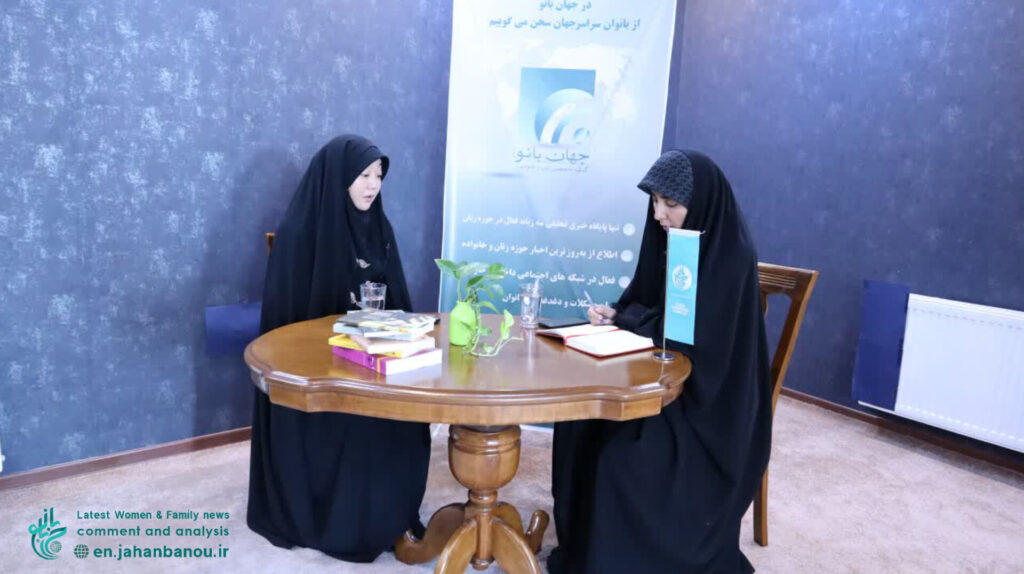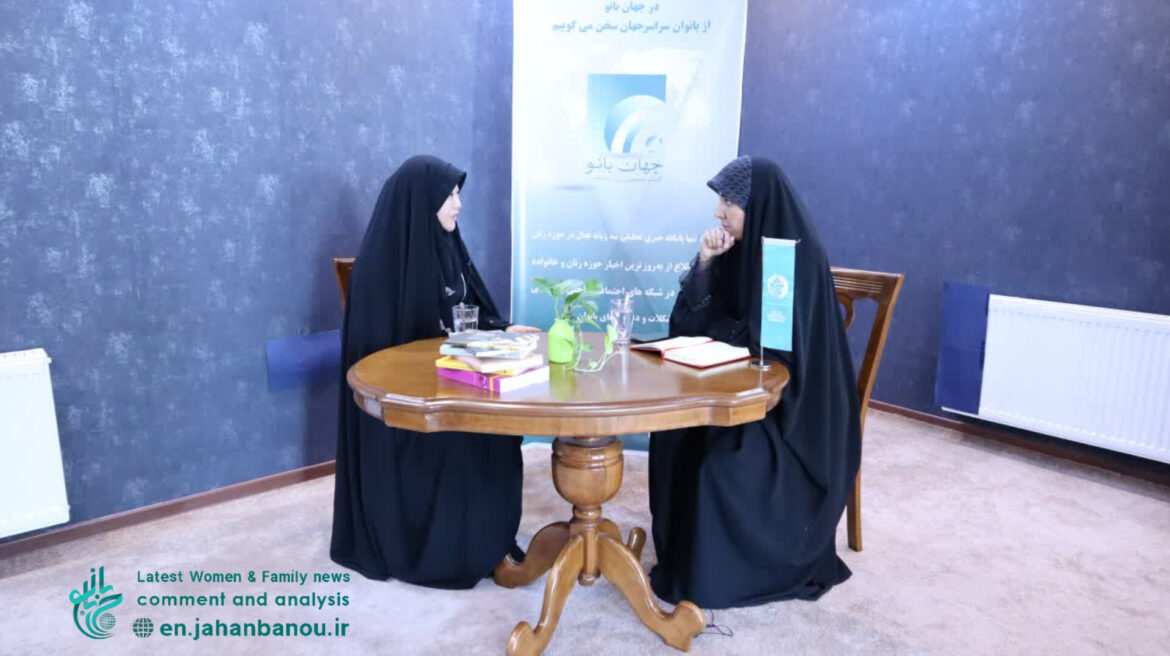As a Japanese Muslim named Fatima Atsuko Hoshino, I’ve always been struck by the misconceptions surrounding Islam. Even when it was often portrayed as a violent religion, I knew from my own experiences and studies that Islam is a global faith with a rich history and a vast community of followers worldwide.
Read on for the exclusive report by Jahanbanou News Agency with Ms. Fatima Hoshino, a missionary of Islam; Part One:
*We are in the presence of Ms. Fatima Hoshino from Japan. She has been a Muslim for 19 years. Ms. Hoshino, please introduce yourself:
I’m Fatima Atsuko Hoshino from Japan. I was born into a Buddhist Shinto family in Japan. In fact, I became acquainted with Islam through the internet and research in Japan, and thanks to God, after that I also became acquainted with the Quran and the Ahl al-Bayt and was guided to this path and migrated to the holy land of Iran about 14 years ago and have been living in Qom for several years.
I studied international relations up to the bachelor’s level in Japan and am also studying in a religious school in Iran and engaged in missionary activities.
The philosophical questions that had formed in my mind since adolescence led me to study and research in cyberspace in search of a lost thing that I found in the Quran!
A Quest for Meaning
Challenges and Voids
*Ms. Hoshino, what challenges and voids did you face before becoming a Muslim that led you to Islam?
I had deep philosophical questions from the age of nine. The same famous questions that say where are we, where were we, and where are we going? I felt like I was a traveler and a traveler should know the destination of the journey; because otherwise, the journey becomes futile and I first went to the religions that were in Japan, namely Buddhism and Shinto, but I did not find an answer.
Of course, I had an uncle who studied in America and became a Christian there and is now a professor of the Gospel and also a pastor in Japan, and since he tried to make me a Christian too, I got acquainted with Christianity as well; but I did not find a convincing and logical answer in Christianity either.
Then I went to university and because I did not know the purpose of life and for this reason I felt that I was getting worn out every day. That is, the culture and lifestyle were designed in such a way that the appearance of everything was important. Only the appearance of life and the appearance of man were considered.
At the same time, I heard a cry from within myself that said my true value should not be limited to this skin, flesh, and bones.
Discovering Islam
It was during those days that they talked a lot about Islam on television, but negatively. In a way that Islam was shown as a violent religion and they constantly implied that Muslims were terrorists and dangerous.
And this was while I knew that the religion of Islam, with a long history, is a global religion and has many followers around the world. If this religion is really bad and negative, why has it continued until now?!
This is when I decided to become a Muslim.
Because of the questions that formed in my mind, out of curiosity, I started studying and realized that the truth of Islam is not at all what the media says and it was very interesting for me. I studied constantly, although the studies were mostly in English.
Materials about Islam were rarely found in Japanese, and I studied books and articles in cyberspace because printed sources were not available.
Finding Answers
Then I became acquainted with the Quran and found the Quran to be a book in which the answer to everything could be found, and at that time I wanted to find my own purpose and meaning in life. In the end, I found the answer in a short verse in the Quran: “And I did not create the jinn and mankind except to worship Me,” and that was when I decided to become a Muslim.
Shia Islam and Conversion
Of course, at that time I only became a Muslim to be a follower of the Quran, and in Japan, like many other countries, the promotion of Shiism is much less than the promotion of Sunnism.
Therefore, I first became a Muslim through the Sunni Islamic Center; but about ten months later, I had a trip to South Korea and there I met a student who was from Malaysia and he spoke very negatively about Shiites and did not consider Shiites to be Muslims but even considered them infidels and polytheists.
I was curious again to see what the Shiites themselves had to say.

*So before that, you were not familiar with Shiite Islam in Japan?
No, not at all. In general, I didn’t have any direct contact with a Muslim person in Japan. I always did my own research online and wrote questions online that a few people always answered me.
The only language that says to a couple “zān va showhār”(wife and husband), is the Persian language, which is a sign of respect for women.
Cultural Identity and Islam
*Ms. Hoshino, as a Muslim woman and at the same time Japanese, and the fact that you also live in Iran, have you not faced any cultural challenges that would cause you to have a dual identity? Or in other words, how do you connect between Iranian and Japanese culture?
My Muslim identity is definitely much more important than my Japanese identity. Thanks to God, I have many friends from different countries and our common language and culture is Islam, not anything else.
Of course, the culture of the country in which we grew up has an impact. But our criterion should be our religion. If we are firm on this principle, we will not have any problems.
The Impact of Western Influence
Fortunately, I saw many positive points in Iran. In Japan and Buddhist culture, women do not have a high status and absolute patriarchy exists. But after World War II, Western culture entered Japan and although it caused a new kind of oppression of women in addition to the old oppression.
Regarding a woman’s alimony in Japan, it is like this that the prevailing culture and custom obligates the man to pay alimony to his wife and children; but the non-payment of alimony has no legal guarantee.
Or in relation to a woman’s financial independence, sometimes due to the bankruptcy of the spouse, the woman and man may separate in order to preserve the woman’s property; because otherwise, the husband’s debt will be paid from the woman’s property.
Language and Respect
Fortunately, I learned different languages. The only language that says to a couple, wife and husband, (zān va showhār), not husband and wife, is Persian.This is one sentence, one word. But it shows how much respect the speakers of this language have for women.
Beyond Patriarchy and Matriarchy
The important issue is that there is no patriarchy or matriarchy in Islam. The only thing that exists is the worship of God.
The function of the hijab for a woman is the respect and dignity of the woman so that she can work in society without any harm and it is one of the signs of the support of women’s rights in Islam. Read on..
There’s more to come in part two! Don’t miss it..
Reporter: Faezeh Aghamohammadi


